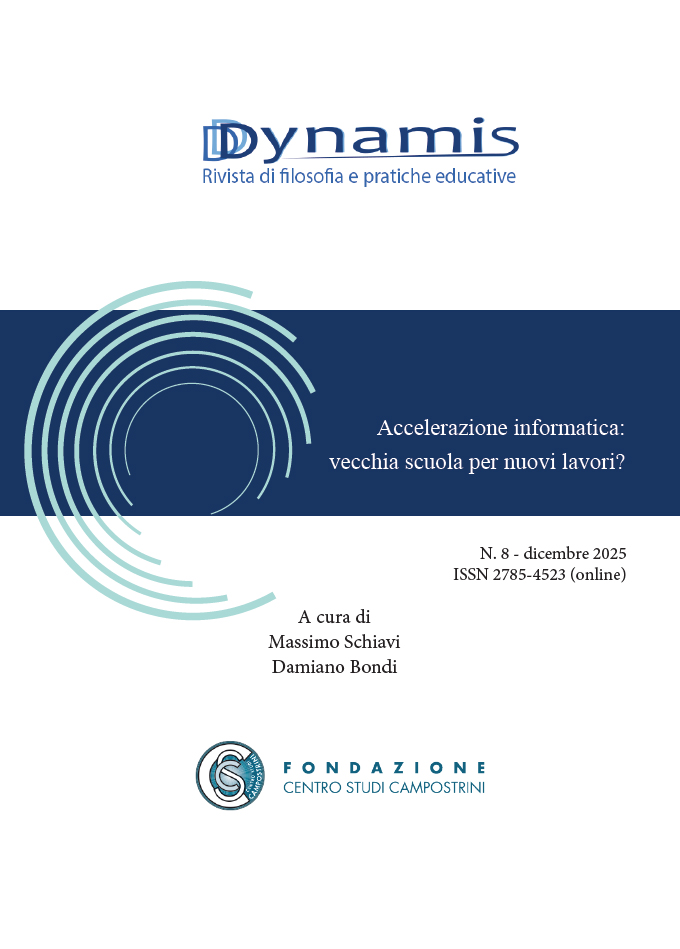MEDICALIZING SCHOOL?
In recent years, there has been a growing tendency to interpret educational difficulties through a diagnostic and clinical lens. The widespread use of labels such as Special Educational Needs (SEN), Specific Learning Disorders (SLD), or other developmental disorders has generated a complex and urgent debate. While such categorizations can help to identify students' needs, they also raise deep questions about the risks of reductionism, stigmatization, and the abdication of educational responsibility.
This issue of the journal seeks to collect contributions that critically reflect on the phenomenon of the medicalization of educational difficulties, fostering an interdisciplinary dialogue between philosophy, pedagogy, psychology, sociology, and educational sciences.
Deadline: june 30th, 2026
Read more about MEDICALIZING SCHOOL?




